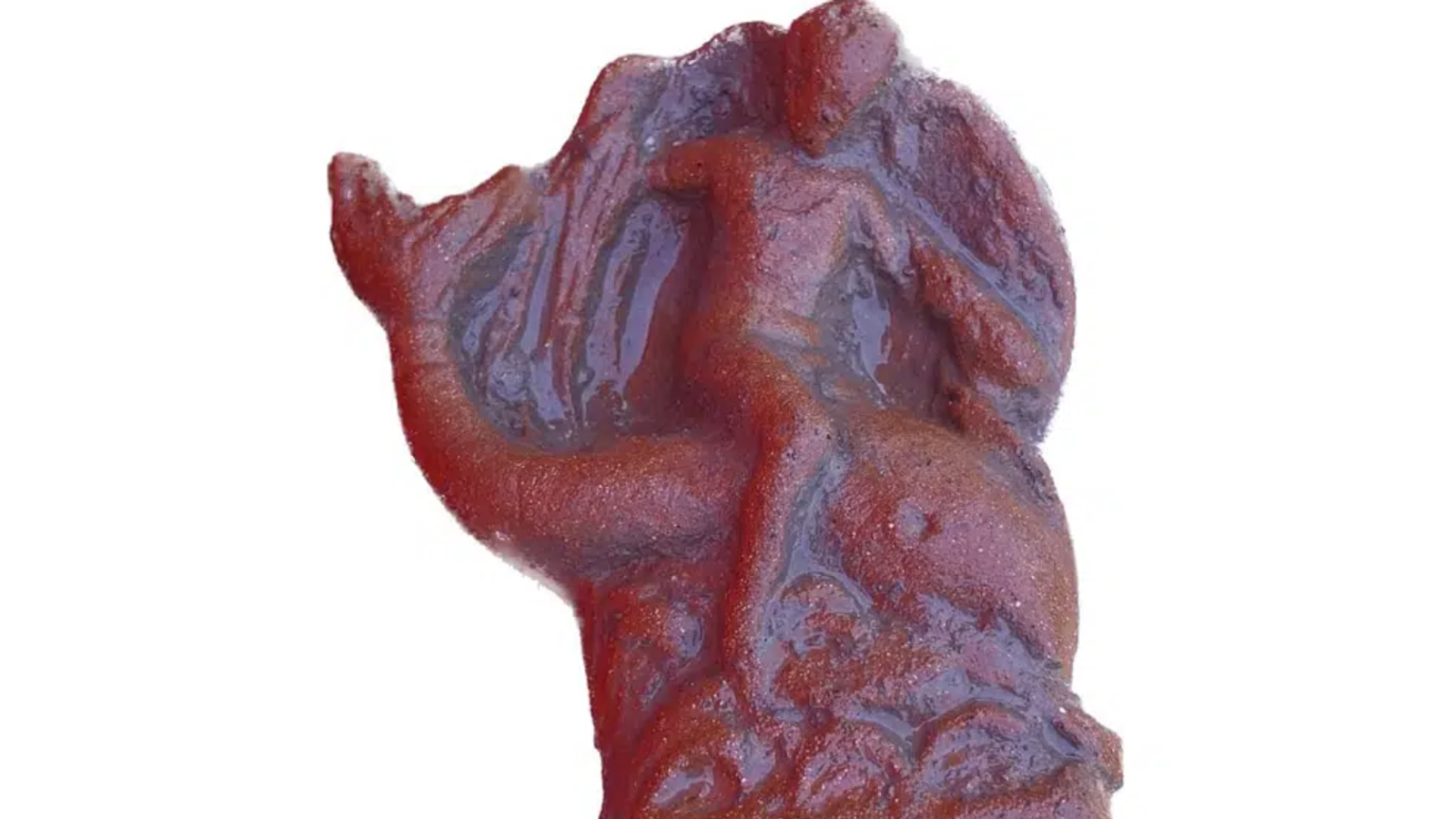Greek god of love and sex riding a dolphin among artefacts unearthed at ancient city of Paestum

Artefacts from an ancient Greek city dating back more than 2,000 years have been identified for the first time.
Terracotta bull heads and a figurine of Eros, the Greek god of love and sex, riding a dolphin were unearthed at what was once Paestum on Italy‘s Amalfi Coast.
The city was famed for three huge temples, sporting towering Doric columns that are a recognisable feature of many famous structures from Ancient Greece – such as the Parthenon in Athens.
Situated near the archaeological site of Pompeii, Paestum dates back to the fifth century BC.
It fell under the rule of the Romans by around 275 BC.
Italian culture ministry officials said the discoveries shine new light on what religious life was like in an ancient city.
The bull heads, of which there were seven, were placed around a temple altar in an apparent gesture of devotion.
Read more:
Statues discovery to ‘rewrite history’
How famous Greek symbols ended up in British Museum
The Eros statuette appears to be from a family of ceramists called the Avilis, whose presence at Paestum had never been documented before.
Advertisement
Archaeologists hope to find more artefacts at the site, where limited excavation work first began in the 1950s.
Work at the temple where the bull heads and figurine were found first started in 2019, but was put on hold by the COVID pandemic.